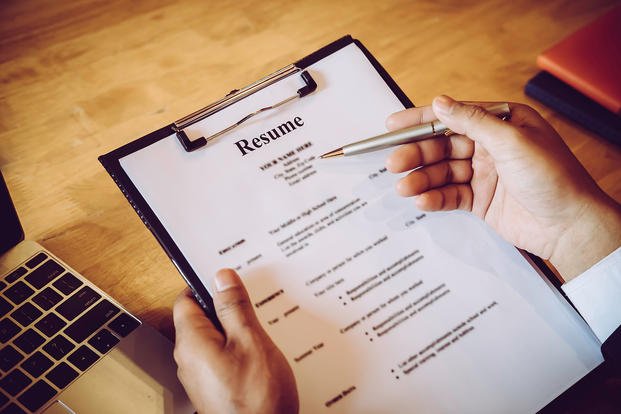Question: I’ve spent hours fine-tuning my post-military resume. I had a resume writer help, ran it through various AI tools and have edited this thing to death. How can I tell if it’s done and should be sent out?
Answer: I can hear the apprehension about your resume in your question, which might indicate that you’re not clear on what your resume should do for you. It’s not a “carved in stone” file … It’s more of a fluid document that will carry you forward into your civilian career.
Here are some understandings about the role of the resume to help you determine whether yours is ready to send:
1. Your Resume Reflects What You’ve Done in the Past
It offers highlights, descriptions, quantifiable and qualifiable results and outcomes, and lists the achievements, skills, certifications, credentials and career progression you’ve attained. It is not a reflection of who you are as a person, nor does it tell your complete story.
Read Next: How to Ask for Mentorship
2. As You Grow Your Career, Think of Your Resume as a Living Document
You’ll add new skills and credentials as you upskill. You’ll drop some things off your resume over time, because they are either outdated or irrelevant to the work you’re doing. You may even amend the formatting and tone of your resume to reflect your vision and direction as you grow in your roles.
3. Your Resume Should Not Be a Static Document
You may have a few different versions to send to different types of jobs. For example, if you’re looking for a role in operations, retail or special events, you may have three resumes prepared and named accordingly so you don’t mix them up. The information listed in each one may highlight different experience and skills for specific career areas.
The resume is not everything. There, I said it. It’s not the holy grail of what will get you a job. It should sell you as a viable candidate, interest the reader enough that they want to learn more, and secure you a job interview. But it alone won’t get you a career.
Consider this: You go to a new restaurant and the menu is limited or lackluster, but the service is amazing, the ambience is cozy, and the food is delicious and creative. Would you consider going back? Yes! You had a great experience. And, over time, perhaps they’ll add new menu items and things will get even better.
Now, let’s imagine you go to a restaurant and the menu is amazing -- so many options of your favorite things to eat! You’re excited about all the choices, but the service is terrible, the place is too hot (or cold), the music is uncomfortably loud, the prices are ridiculously high and the food -- once you finally got served -- lacked any flavor. Would you go back? Of course not.
The menu represents the resume; it lists what’s available, but it doesn’t necessarily predict the experience. That’s where your personal brand (how you act and communicate and the relationships you hold, online and in person) sells the experience of you.
Spend the time to prepare a resume that you’d be proud to distribute and start applying. Adding a well-written cover letter helps! And then, when the interviewer looks at your LinkedIn profile, talks to people who know you and interviews you, the experiences should align with what they anticipated when they saw your menu … er, resume.
Find the Right Veteran Job
Whether you want to polish your resume, find veteran job fairs in your area or connect with employers looking to hire veterans, Military.com can help. Subscribe to Military.com to have job postings, guides, advice and more delivered directly to your inbox.







